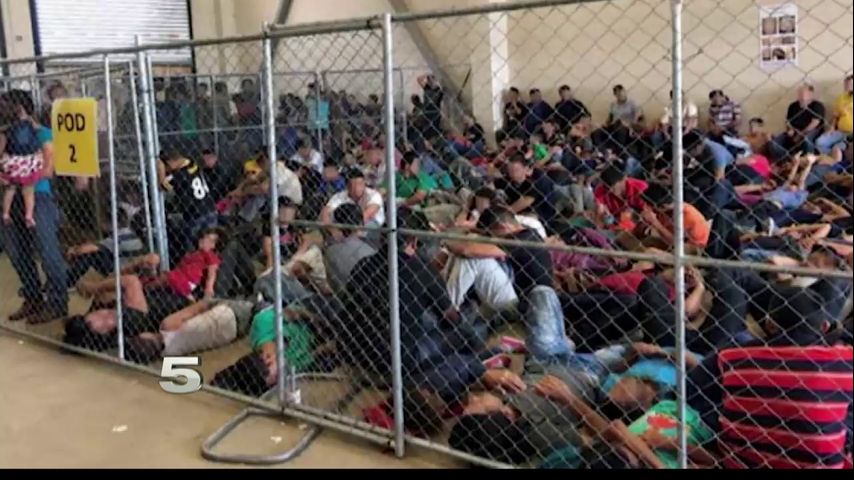Lawsuit Seeks to Improve Conditions, Processing Times at RGV BP Detention Facilities
BROWNSVILLE – Conditions and length of stay at Border Patrol facilities in the Rio Grande Valley could change as the result of an ongoing hearing.
A preliminary injunction hearing began Thursday at the Brownsville federal courthouse.
On Thursday, the petitioners offered emotional testimony of their time in crowded facilities since May.
Attorneys for the group, including Texas Civil Rights Project Senior Attorney Karla Vargas, are concentrating on making two points.
"We're focusing on the way in which Border Patrol detains people, the length of detention and trying to stop those practices," she says.
The government attorneys say the conditions the migrants experienced have changed.
Right now, they are no longer crowded and are way under capacity with only 625 in custody.
They credit the Migrant Protection Protocols.
On average, the government is sending back 1,200 migrants to Mexico under the protocols, also known as "Remain in Mexico".
Attorney for the government told the judge conditions have improved because the influx is down.
Vargas contends, "this is possibly going to happen again because of the practices that Border Patrol has and that's what we're trying to show."
The lawsuit says Border Patrol is violating their own statutes stipulating they should process migrants in 72 hours.
Currently, processing times stand at 31 hours for men and 54 hours for women, the government lawyers testified.
All five petitioners, including U.S. teen Erwin Galicia, said they experienced long delays during their detentions dating back to May.
One man was even held for more than 50 days before being turned over to Immigration and Customs Enforcement custody.
During their detention, the men said they were not allowed to make calls. The lawsuit claimed they were held incommunicado.
The government countered presenting forms signed by some of the men showing they denied a visit with their respective consulate representatives.
The forms state that consular representatives can help connect the detainees with relatives or attorneys.
Some migrants testified saying that they were misinformed about the benefits of that visit stating agents told them consular representatives could only help in deportations.
Vargas says, "The way in which those forms are explained, the detail that they're given really varies by agent and in no way does that fully encompass and let people know what rights they have."
Crowded holding cells meant migrants had to sleep on the floor in shifts.
Some would sleep for a few hours and then wake up so the standing migrants could take over their spot on the floor.
One night, one of the migrants who testified says he awoke because water was seeping under his mylar blanket.
That's when he noticed the toilet was overflowing.
The toilet overflowed for other migrants during their detention.
One says they had to sleep among the sewage that had spilled out of the toilet until it was cleaned up the next day.
Migrants reported medical care was scarce.
One of the men collapsed from a cardiac event and was prescribed a laxative.
Another man complained about a toothache, which he admitted was a problem prior to his detention.
He was taken to hospital and prescribed pills that proved to be ineffective.
The pain persisted and the man resorted to using a strip of the mylar blanket to yank out the aching tooth.
Government attorneys counter some migrants arrive in detention with pre-existing conditions.
Attorneys for the petitioners want to make sure experiences like the ones described by the petitioners are not repeated in the future.
Vargas explains, "This preliminary injunction hearing is a special ask to the court to issue an order where the court is ordering Border Patrol to do a number of things essentially improving the conditions and length of detention of people in the Rio Grande Valley."
On Friday, the government will be putting their witnesses on the stand including the Rio Grande Valley Sector Border Patrol chief.





